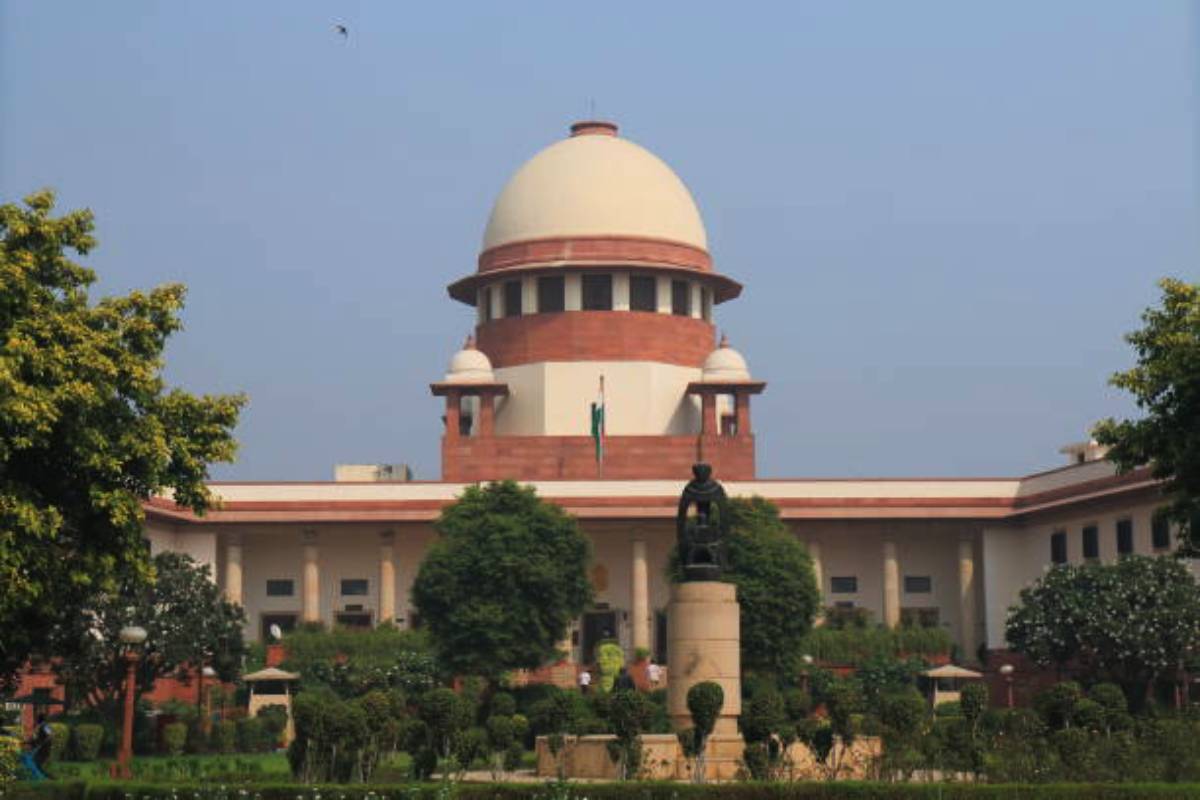‘No alliance with AAP in Delhi’
Delhi Pradesh Congress Committee (DPCC) chief Devender Yadav is counted as one of the prominent politicians in the national capital.
In a related development, the ED informed the top court that the Aam Aadmi Party too would be named as a co-accused in the Delhi Excise Policy case.

Representational Image
The Supreme Court on Thursday refused to take note of Delhi Chief Minister Arvind Kejriwal’s statement made in an election speech on May 15 that he would not be going back to jail on June 2 – as ordered by the top court – if broom – the AAP election symbol – is voted in the ongoing General Election to the Lok Sabha.
In a related development, the ED informed the top court that the Aam Aadmi Party too would be named as a co-accused in the Delhi Excise Policy case.
A bench comprising Justice Sanjiv Khanna and Justice Dipankar Datta referred to their May 10, 2024 order by which Kejriwal was granted 21 days bail with direction to return to jail on June 2, 2024 as the Directorate of Enforcement cited a speech of Kejriwal stating “if you vote for broom, I won’t have to go to jail on June 2. How can he say this?”
Advertisement
The Solicitor General Tushar Mehta arguing for the Directorate of Enforcement said, “It’s a slap on the system by the petitioner. Petitioner treats himself as a special person. We treat him as any other person. Please see what he said on the first day. Your lordship said he will not say anything about the case.”
However, the bench said that they have restrained Kejriwal from saying anything on his role in the matter and not on the matter as such.
Justice Khanna said, “No, we said he will not discuss his role in the case.”
As Solicitor General Mehta again referred to the statement by Kejriwal in an election speech, Justice Khanna said, “That’s his assumption, we don’t know. What we felt was justified, we said. Our order was very clear. We specifically said we are not making an exception to anybody.”
“We will not go into this,” Justice Khanna said, putting the matter to rest.
At this, the senior advocate Abhishek Manu Singhvi appearing for Kejriwal referred to a “statement by a Central Minister.” Apparently, Singhvi was referring to an interview by the Union Home Minister Amit Shah who had said that the Supreme Court’s order was not routine and that many people felt that a special treatment was given to Kejriwal.
Justice Khanna said, “We welcome critical analysis of the verdict.”
The top court is hearing Kejriwal’s plea challenging his arrest on March 21, by the Directorate of Enforcement and the subsequent remand in Delhi Excise Policy case.
Since the arguments advanced by the Additional Solicitor General SV Raji also appearing for the ED remained inconclusive, the court decided to continue hearing on Friday – May 17 at 2.30 pm. The hearing would conclude tomorrow and the bench is likely to reserve its order. Besides ASG Raju concluding his arguments tomorrow, Abhishek Manu Singhvi will advance his rejoinder arguments.
The day-long hearing today saw both the Solicitor General Tushar Mehta and Additional Solicitor General SV Raju – both appearing for ED – arguing both on the law and the merits of the material on record to justify the arrest of the Kejriwal.
The focus of the hearing was Section 19 of the Prevention of Money Laundering Act, 2002 which vests in the investigating officer with the power to arrest a person if on the basis of material in his possession he believes that the person is guilty of offence under the PMLA.
ASG Raju said that material on the basis of which the investigating officer has formed his opinion and arrested Kejriwal cannot be gone into by the court, and the Court cannot substitute its opinion with the opinion arrived at by the investigating officer.
“Reasons for the investigating officer to come to conclusion on the grounds to arrest Kejriwal has nothing to do with the material on record and the same cannot be gone into by the Court,” ASG Raju told the bench, further stating “We have evidence, it is not a case of no evidence. Whether it is sufficient or not is a different matter.”
However, the bench said that though the satisfaction of the investigation officer is subjective, the application of the mind by him on the material available with him has to be in totality and the same should be apparent.
In the course of the hearing, the top court asked the ED to focus, in terms of Section 19 of the PMLA, on the material that was available with the investigating officer till March 21, that was relied upon to arrest Kejriwal. The court also said that nothing that surfaced post March 21 can be taken into consideration against Kejriwal.
Advertisement